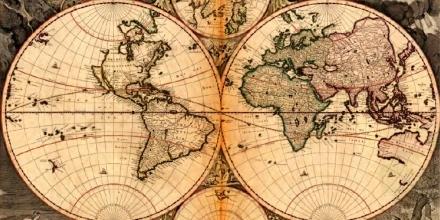
Along with interdisciplinary debates on globalization, the last few years have witnessed a resurgence in the idea of the ‘world’, and markedly so in humanities and the arts. ‘World History’, ‘World Literature’, ‘World Art, and ‘World Music’ are now frequently cited sub-disciplinary rubrics. As market categories, of course, these have circulated for a while now to signify cultural productions from the non-West. But the idea of ‘world’ we wish to invoke here transcends this cultural divide and speaks to a domain of human connectivity, a form of relationality, a being-with-others that cannot be wholly contained within the economic and political systems of globalization.
While both globalism and worldmaking connote an orientation to a domain larger than one’s immediate affiliations – kinship, ethnicity, race, region, nation – the distinction between the two concepts, ‘globe’ and ‘world’ is only just beginning to receive increasing attention, with the former marked by the material flows of capital and the space-time compression these bring in their wake, and the latter by a more idealist dimension marked by human labour, creativity and expressivity. Thinkers/writers from Goethe, Marx, Kant and Leibniz to Heidegger, Arendt, Derrida and Nancy have provided much of the philosophical and critical bulwark to this body of contemporary scholarship.
Questions about world making have ranged from its disjunctive temporality in relation to the time of global capital to its normative capacity to arrive at yet another vision of the universal, to enter into yet another compact with humankind in this era of hyperconnectivity through advances in information and communication technology. Questions of scale and scope, given our primarily nation- or region-centric paradigms of knowledge making, are not surprisingly part of this scholarly repertoire, as are questions of its affinity with other global concepts such as cosmopolitanism, international relations and world-systems theory. Of particular import is the special resonance the idea of worldmaking has had in the predominantly aesthetic fields of literature, music and the arts.
We propose to dedicate the year 2011 to exploring this emerging conversation on the idea of the ‘world’ and fellowships were offered to academics working in this field.